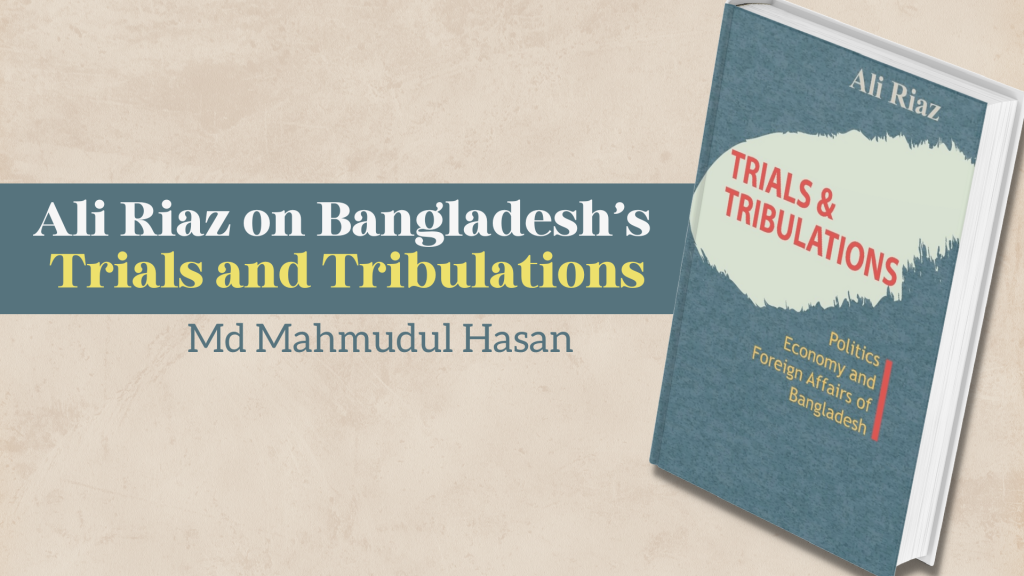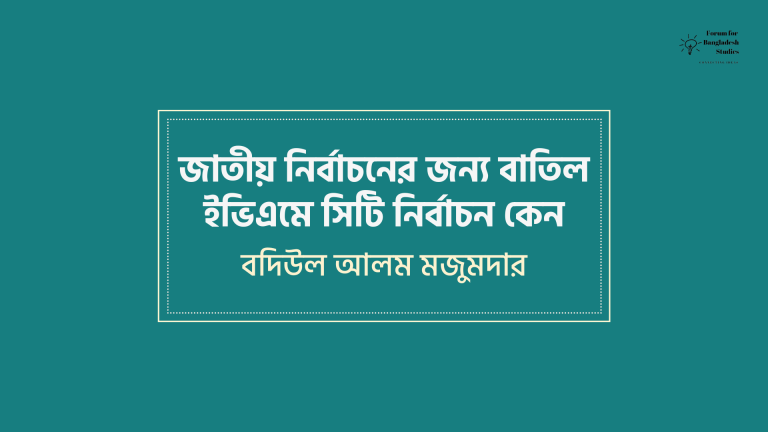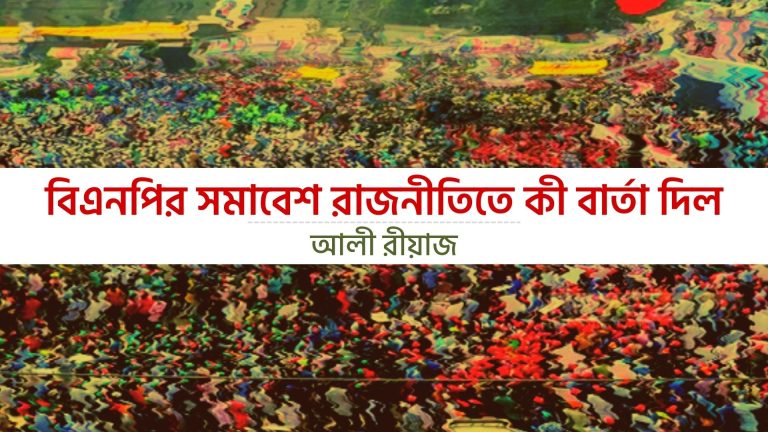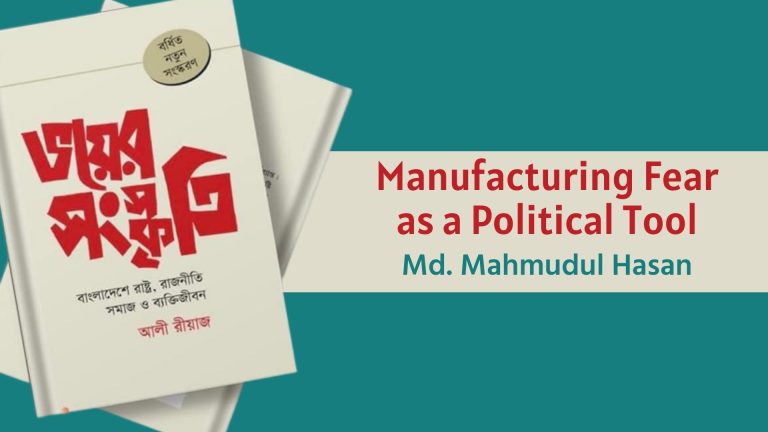A few years ago, during a visit to Bangladesh, I performed Friday jum’ah prayers at a mosque in Dhaka. It was one of those times when government repression on the opposition was at a high point. A climate of fear and insecurity gripped the whole nation, as silence and irrationality pervaded much of the political narrative. The police and ruling party people were having a bit of rough and tumble play at the expense of decency and good taste in public life.
The imam took to the pulpit and started delivering his routine sermon. Within minutes, he went political in his utterances, eulogising the government and castigating all those who were ‘blind’ to its ‘accomplishments and achievements.’ In a blatant attempt to distract public attention from the outbreak of oppression on the street, he challenged all to turn their eyes to the newly built flyovers in Dhaka and assess the level of infrastructure development that the government effectuated in the country.
One target of the imam’s attack was the principle of democracy. He argued that such a system of government — in which leaders are held accountable for their actions by and to the people — would never bring prosperity in Bangladesh. He referred to Saudi Arabia where democracy is omitted from political discourse, adding that, as a Muslim-majority country, Bangladesh should emulate the Arab country, not the USA.
While the imam was thundering from the pulpit against the sceptics, some members of the congregation looked at each other and then looked down at the floor in disappointment. A few others yawned and made some gestures of annoyance before leaving the prayer facility. I remained in the mosque as a spectator of the drama dominated by the monologue of the imam.
Later, I came to know that the mosque is controlled by a ruling party heavyweight who was the employer of the overenthusiastic imam. Obviously, the imam drew lessons from stories of other prayer leaders who had been languishing in prison for years for speaking truth to power from the pulpit.
Ali Riaz’s Trials and Tribulations: Politics, Economy and Foreign Affairs of Bangladesh (Prothoma, 2023) has brought to my memory what the imam was saying years ago on that Friday afternoon. The book debunks the myth of economic ‘progress’ trumpeted and touted by the party in power and by its peddlers on pulpits and podiums. Years on, now the imam’s boastful remarks about the country’s development — ‘impressive economic growth’ — would sound comical given that the regime is going door-to-door from the IMF and World Bank to other international financial institutions for loans. Behind all the mega projects to which the imam alluded lie tales of corruption and overpricing of materials which rendered their cost ‘the highest in the world’ despite Bangladesh being a country of cheap labour. Worse, the ill-gotten money then flees the country through capital flight, causing a heavy financial haemorrhage to the poor nation.
Ali Riaz leads us through a dreadful catalogue of oppression that has characterised the governance of Bangladesh since early 2009. That the dedicatee of the book is the late writer Mushtaq Ahmed (1967–2021) — who was subjected to slow death over nine months in a prison near Dhaka for exercising his freedom of expression — is itself a statement about the nature of the government under discussion. Later in the book, Riaz touches on the deaths of many others in comparable circumstances. He makes special mention of the meritorious student Abrar Fahad (1998–2019) who was bludgeoned to death over four hours at his BUET dormitory by members of Chhatra League, the student wing of the ruling party.
Fahad had to die because of his social media post for a fair water share for Bangladesh which India has been denying for decades. He was killed by ruling party affiliates not necessarily for criticising the Awami League but for writing something that went against the interest of India. While at campuses inside Bangladesh Chhatra League activists punish critics of India, those in the corridors of power keep silent about Bangladeshis being killed at the hands of the Indian BSF along the India-Bangladesh border — all this, according to Ali Riaz, in addition to protecting ‘New Delhi’s strategic and economic interests, which include access to Bangladeshi ports and transit through the country to India’s northeastern region’ (p.44).
These marks of ‘gratitude’ to India suggest Awami League’s dependence on the neighbouring state to remain in power to the detriment of the interest of Bangladesh and the trials and tribulations of its people. What we are considering here is the privations of the ‘eighth most populous country in the world.’ Only those with an appallingly low concern for human rights can overlook the suffering of such a large group of affected people.
Trials and Tribulations contains essays that discuss the handling of the Covid pandemic in Bangladesh against the backdrop of what Riaz calls the ‘pandemic of persecution’ and ‘carnival of corruption’ on the political plane. Therefore, he argues, during the pandemic the hardships of Bangladeshi people were threefold greater at a time when ordinary people were severely stricken by the unreasonable and repeated price hike of essentials.
As Ali Riaz shows, democracy has disappeared from Bangladesh since the non-participatory election of 2014 — when 153 candidates won their seats unopposed — and was formally killed through the nocturnal ballot stuffing in 2018 when the Awami League and its allies ‘won 288 of the 300 seats in the parliament.’ As a result, the ruling party and its loyal opposition have rendered the national assembly a circus and a joke — a rubber stamp of the government — which has now earned its value for comicality and entertainment. What is more, in today’s Bangladesh there appears little separation between the opposition, ‘the government, and the institutions of the state’ (p.42).
Trials and Tribulations provides a data-driven analysis of the various harsh and punitive measures adopted by the government as well as details of their victims. The statistics Ali Riaz provides points to one obvious difference from previous political oppression in Bangladesh — its volume and breadth. The very extent of the repression is unprecedented in the country’s history and incomparable to the level and scale of oppression under previous governments. What is more, previously mainly opposition political leaders and activists were at the receiving end of political violence and repression. Under the incumbent government, people of almost all strata of society and age groups have been subjected to victimhood.
Ali Riaz mentions ‘dubious graft charges’ (p.42) against BNP chairperson and former prime minister Khaleda Zia who went through the ordeal of innumerable court appearances over a number of years. She was finally convicted in February 2018 and spent two difficult years in prison. It is perhaps worth mentioning that there were corruption charges against the incumbent prime minister all of which were dropped once she took office in 2009. This vindicates Ali Riaz’s claim that the judiciary under the current regime is ‘grossly compromised.’
People inside Bangladesh are muzzled by the fear of torture and in many cases have to choose between democracy and death. Others have opted for silence and tacit approval of the government’s corruption and oppressive policies in return for awards, positions, perks and privileges. Effective condemnation from the international community could make some positive change in the governance of Bangladesh. However, outside criticisms of the breakdown of democratic institutions in Bangladesh have been shrouded by strategic and economic motives, which helped the government remain in power through manufacturing fear in the hearts of people and through ‘coercive measures against its citizens’ including enforced disappearances. As Ali Riaz states: ‘Unfortunately, few forces inside or outside the country seem willing or able to do anything to avert [the] disaster’ of ‘a de facto one-party authoritarian state’ (p.38). Hence, he adds, ‘for the most part, the Hasina government faces little external pressure’ (p.44).
At a time when censorship and self-censorship typify much of the academic discussion of Bangladesh’s politics, Ali Riaz’s book provides a brave source of information about how the country has been ruled since early 2009. It is a must read for anyone — inside or outside Bangladesh — interested in the current affairs of the country.
Originally Published : New Age, 7 March 2023




